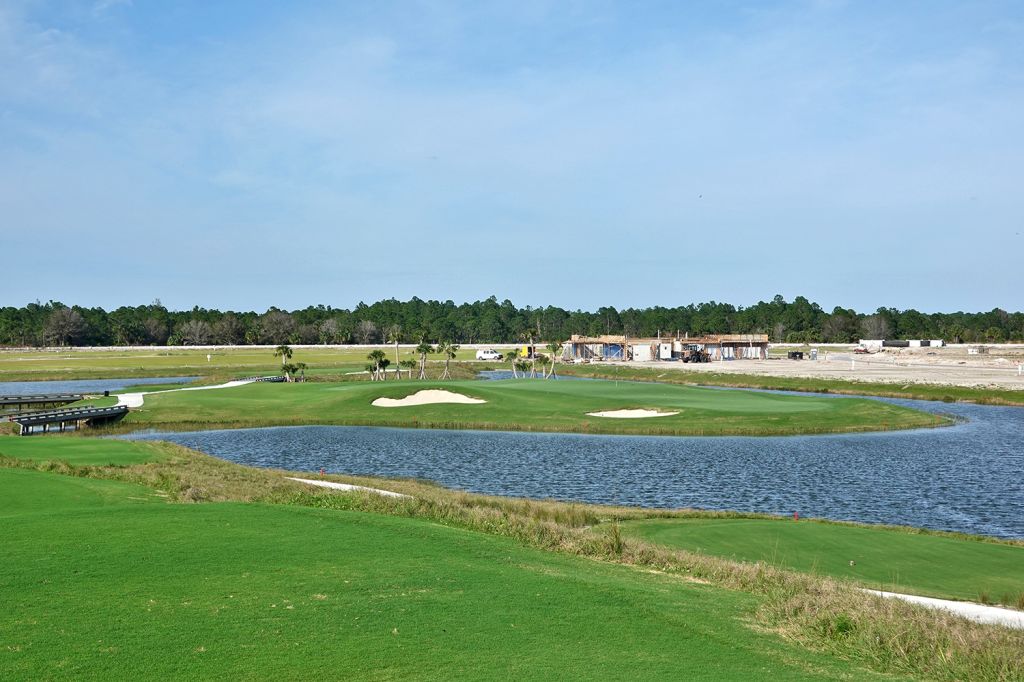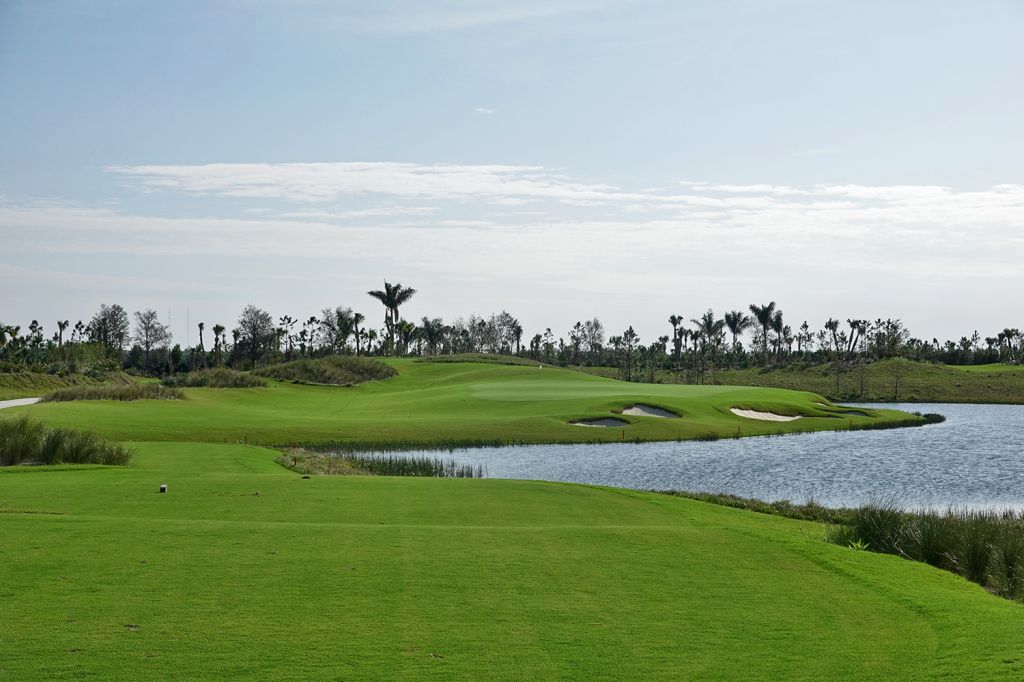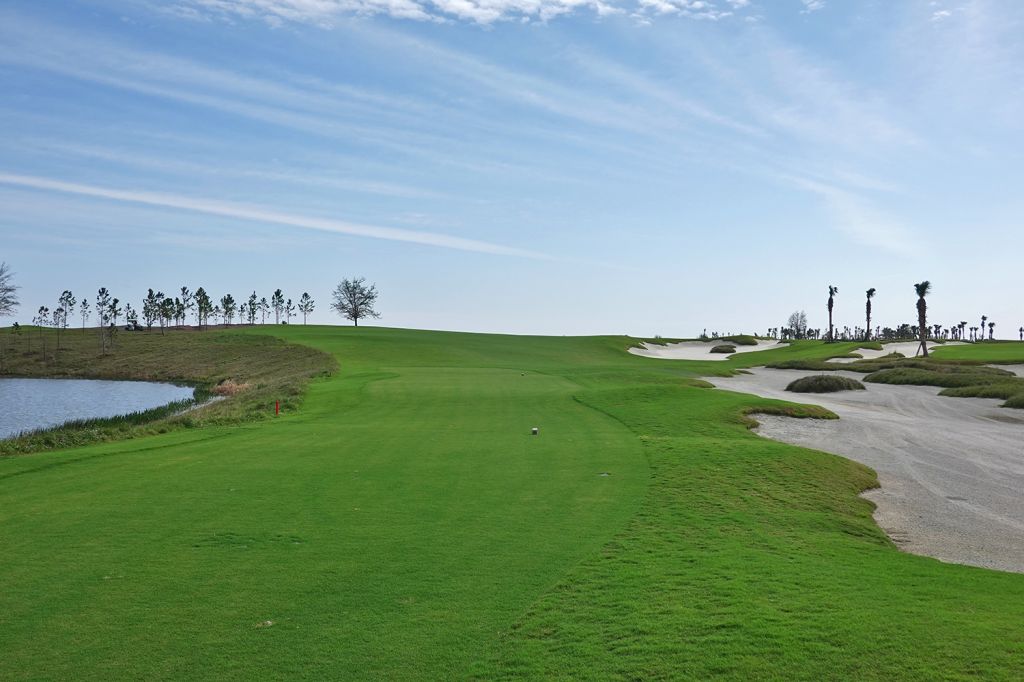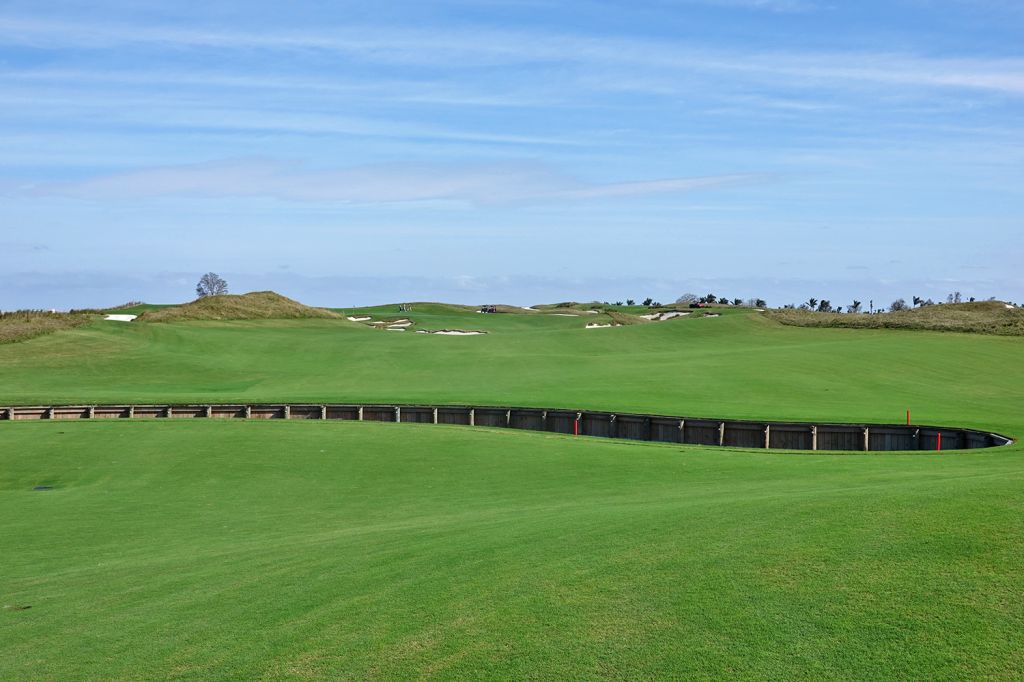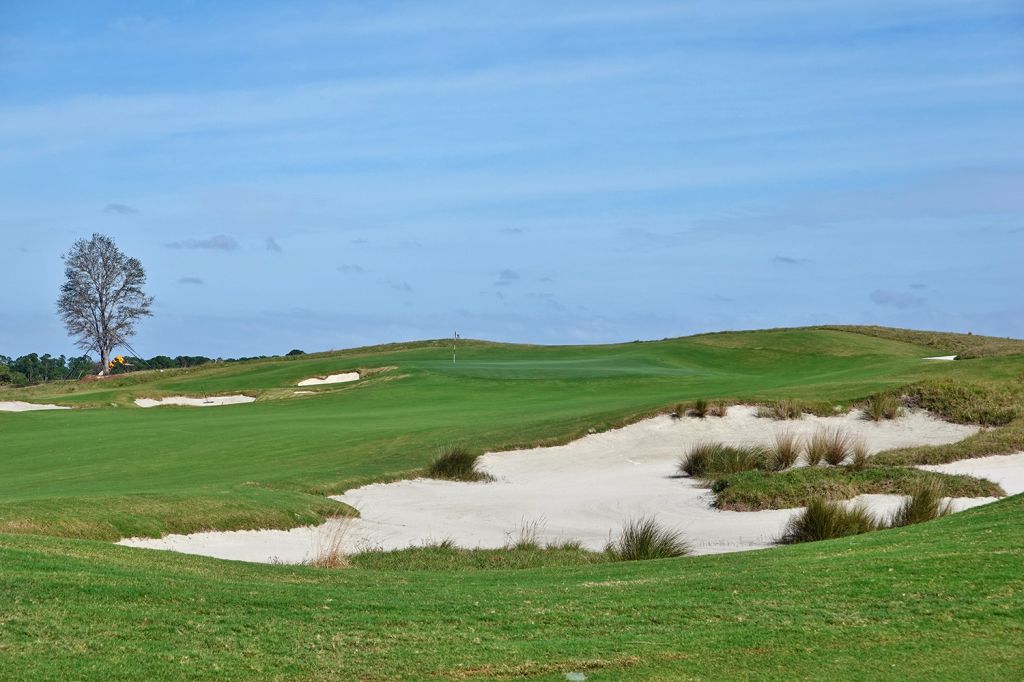 Golf Course Review by: Billy Satterfield
Golf Course Review by: Billy Satterfield
Rankings:
The Takeaway: Nicklaus moved 2.5 million cubic feet of earth to create engaging hole designs after beginning with flat terrain. The resulting variety of hole lengths and shapes, including an island green par four, is excellent for the area and shows how modern machinery can make something great out of nothing. Grade B+
Quick Facts
Designer: Jack Nicklaus and Justin Thomas 2023
Cost: Private
Phone Number: 561-225-1763
Course Website: Official Website - Visit Panther National's official website by clicking on the link provided.
Directions: Get here! - 10991 Panther National Blvd, Palm Beach Gardens, Florida 33412 – UNITED STATES
Photos: See additional photos of Panther National
Similar Course:
What to Expect: Panther National is the result of modern day machinery that is able to move enough earth to create compelling golf terrain after starting with dead flat ground. Jack Nicklaus does a great job of shaping holes that give variety in the lengths, shapes, and elevation changes which keep players engaged from start to finish. The greens are a bit tamer than what Nicklaus has done in recent years, and frankly, that is a good thing. The two-shotters are of particular quality with an excellent amount of variety and challenge to engage with; including an island green. The turf is maintained in excellent playing shape while the ground is kept just firm enough to reward players that know how to work the ground game. The course tips out at an astonishing 7864 yards with a rating and slope of 78.7/147 from the JT (Justin Thomas) tees and would certainly be worthy of hosting a PGA Tour event if the Florida swing decided to switch venues. Speaking of Thomas, his input was minimal in the design process as he mainly used the experience as an opportunity to learn from Jack, though his name should draw some appeal from the younger generation. Ultimately, the design at Panther National is commendable and worthy of gaining some recognition in the highly concentrated Palm Beach area. The main downside over time will be the number of homes that surround the property which will quickly eliminate views outside the course.
By the Numbers
| Tees | Par | Yardage | Rating | Slope |
|---|---|---|---|---|
| JT | 72 | 7864 | 78.7 | 147 |
| Black-Senn | 72 | 7268 | 76.1 | 141 |
| Silver | 72 | 6710 | 73.4 | 136 |
| Gold | 72 | 6212 | 71.4 | 129 |
| Blue | 72 | 5607 | 68.6 | 122 |
| Green (Ladies) | 72 | 5059 | 70.9 | 125 |
| White (Ladies) | 72 | 4492 | 67.1 | 121 |
Individual Hole Analysis
Signature Hole: 15th Hole – 246 Yard Par 3 – The longest par three at Panther National is an attractive one-shotter that plays from an elevated tee over water to essentially a large island green. A pair of bunkers front the green with the one on the left being raised higher which can make accessing the left third of the green much more challenging. When played downwind, it can create a challenge hitting enough club to carry the water but imparting enough spin to get the ball to hold after reaching the land. The green is huge, so the work isn't over once you reach the putting surface since this hole yields more three-putts than perhaps any other. Birdies and pars here should be celebrated.
Best Par 3: 13th Hole – 230 Yards – The 13th features water up the entire right side while the left side is bowled into a tight grass chipping area that will test the best of a player's short game. The tier in the front third of the green will be a demand on players finding the right portion of the green when attacking it, though if you are going to err there is a lot more room in the back of the green than the front. It is certainly an exacting hole with its raised putting surface and more trouble than safety.
Best Par 4: 6th Hole – 470 Yards – When you come to Florida you don't expect to have blind shots given how flat the terrain is, but so much earth was moved at Panther National that it features terrain you'd never expect to find in the Sunshine State. Here at the 6th you face a blind tee shot over a hill with your caddie giving you guidance on the best place to aim your driver. Upon cresting the fairway, players will find themselves facing an approach shot where a second hill with a bunker placed in it blocks the left half of the green while the wide open right side invites players to aim at it with a draw. Balls that don't try will finish in a location where saving par will still be a great chance but approaches that fly the hill, particularly when the pin is on the left, will be rewarded for their bravery with a good look at birdie.
Best Par 5: 11th Hole – 654 Yards – The par five 11th is a difficult hole to reach in two not only because it is long and plays uphill, but there is a unique water channel that appears to come from nowhere and is partially hidden in a lower spot in the fairway. There is quite a bit of fairway width to play with along the way to the green but bunkers are consistently found on either side with the most dangerous ones found on the left side short of the green. A chipping bowl on the right side of the green is not a bad place to be and allows for a great opportunity to get up and down from the receptive side of the putting surface. It is a flat out long hole and you need to stay focused the whole way in, because players weak of mind may find themselves throwing a hangman on the card.
Birdie Time: 16th Hole – 335 Yard Par 4 – When you play a course that is 7864 yards and you come up to a 335 yard hole, you might think it is a par three, but it is actually a gift from Jack and Justin as a late opportunity to pick up a birdie during the home stretch. The tee shot plays over water but it shouldn't be a factor as players take dead aim at the left edge of the green with the hope of hitting a drive as close to the putting surface as possible. The front of the green is wide open and should allow players to go pinseeking either by air or by ground depending on what the conditions call for. Keep it out of the water, and birdie is very much in play here.
Bogey Beware: 14th Hole – 531 Yard Par 4 – This is not a misprint. At 531 yards from the tips, the 14th is an absolute bear of a par four to tackle. Even one tee up is still 477 yards and will require your best game to walk off without a box or two on your scorecard; especially considering it plays uphill. A big drive with a cut will follow the fairway before setting up an approach shot that plays up to a green with two bunkers on the left and a slightly bowled effect around the back. The hill and slight slope in the front will reject shots that come in without conviction, so if you are between clubs there is no question you should take the longer one and give yourself a chance.

